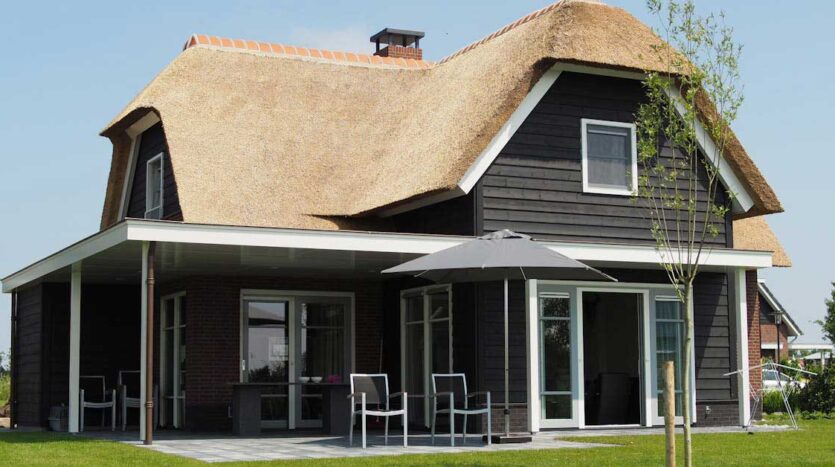What is real estate investment in Nigeria, Lagos
Globally, real estate investing is widely regarded as a profitable prospect, and Nigeria is no exception. Investors are frequently left wondering if real estate investing is actually worthwhile as the Nigerian real estate industry develops. This article will explore the latest developments in Nigeria’s real estate market, look at the advantages and disadvantages of real estate investing, and offer advice to readers so they may make wise choices.
Real estate investment in Nigeria offers a myriad of opportunities for both domestic and international investors seeking to diversify their portfolios and capitalize on the country’s growing economy. Here’s a comprehensive overview:
1. Diverse Market: Nigeria’s real estate market is diverse, encompassing residential, commercial, retail, industrial, and hospitality sectors. Each segment presents unique investment prospects depending on factors such as location, demand-supply dynamics, and economic trends.
2. Population Growth and Urbanization: With a population exceeding 200 million people and rapid urbanization, there’s a constant demand for housing and infrastructure development. Urban centers like Lagos, Abuja, and Port Harcourt are particularly attractive for real estate investment due to their high population density and economic activities.
3. Housing Deficit: Nigeria faces a significant housing deficit, estimated to be in the millions. This shortfall creates an enormous opportunity for investors to participate in affordable housing projects, luxury developments, and rental properties to cater to various income brackets.
4. Infrastructure Development: Government initiatives aimed at improving infrastructure, such as roads, bridges, and utilities, positively impact real estate investment. Infrastructure development enhances connectivity, accessibility, and property values, thereby attracting investment in both residential and commercial projects.
5. Emerging Middle Class: The emergence of a sizable middle class with increasing disposable income fuels demand for quality housing, retail spaces, and recreational facilities. Investors can capitalize on this demographic shift by developing mixed-use properties that cater to diverse consumer needs.
6. Real Estate Investment Trusts (REITs): Nigeria has witnessed the growth of Real Estate Investment Trusts (REITs), providing retail investors with opportunities to invest in large-scale real estate projects without direct property ownership. REITs offer liquidity, portfolio diversification, and income distribution through dividends.
7. Regulatory Environment: Understanding Nigeria’s regulatory framework is essential for real estate investors. Regulations governing land tenure, property rights, taxation, and foreign investment influence the ease of doing business in the real estate sector. Engaging local legal counsel and staying informed about regulatory changes is crucial for successful investment ventures.
8. Challenges: Despite the vast opportunities, real estate investment in Nigeria comes with challenges such as land tenure issues, bureaucratic procedures, infrastructure deficits, and security concerns. Mitigating these risks requires thorough due diligence, local partnerships, and a long-term investment perspective.
9. Technology Adoption: The adoption of technology in real estate, including property listing platforms, digital payments, and smart building solutions, enhances transparency, efficiency, and convenience for investors and stakeholders.
10. Sustainable Development: With increasing awareness of environmental sustainability and social responsibility, investors are incorporating green building practices, energy-efficient designs, and community-focused developments into their projects to align with global trends and meet evolving consumer preferences.
Nigeria’s Present Real Estate Trends
Nigeria’s real estate market is presently observing several significant trends. Nigerian real estate investment is still strong despite the country’s economic difficulties since it has consistently shown to be a solid hedge against inflation and exchange rate fluctuations. Below is an outline of a few of the trends:
Quick Urbanisation
Nigeria’s population is expanding at a never-before-seen rate, which has accelerated urbanisation. There are plenty of investment opportunities as a result of the rising demand for homes and commercial space in major cities like Lagos, Abuja, and Port Harcourt.
Development of Infrastructure
The Nigerian government has made infrastructure development a top priority, and there are currently projects in the areas of power supply, transportation, and road networks. These programmes could increase total property values, draw in firms, and reveal the worth of real estate assets.
Growing Middle Class
Nigeria’s growing middle class is fueling the country’s need for high-quality housing and contemporary amenities. The demand for residential properties, such as gated communities, serviced estates, and luxury flats, is rising as more people look for cosy places to live.
Business Development
Nigeria is seeing a rise in foreign direct investment (FDI) across a number of industries, as its economy diversifies. Due to the increased need for office space, retail establishments, and industrial facilities brought about by this corporate inflow, there are appealing commercial real estate investment prospects.
See also: Seven Forecasts for Nigeria’s Luxury Real Estate Market
Nigerian Real Estate Investment Benefits
For astute investors, investing in Nigeria’s real estate market offers a host of advantages. There is a strong demand for housing due to the country’s thriving economy and growing population. In Nigeria, real estate investments offer a chance to generate consistent income through capital growth and rental returns that frequently beat those of other investment options. A few of the many advantages are listed below:
Constant Cash Flow
Regular rental income from real estate investments can give investors a steady and dependable cash flow. In Nigeria’s thriving rental market, where demand frequently outpaces supply, properties in prime locations can generate appealing rental yields.
Extended Recognition
Real estate values have historically increased over time. Properties in prime locations should see a gain in value as Nigeria’s economy expands, providing investors with the possibility of long-term capital growth.
Stability and Diversification
An investment portfolio can be diversified through real estate holdings, which lowers risk and boosts stability. Investors can lessen the volatility associated with other investing options by diversifying among a variety of property kinds and regions.
Protect Yourself Against Inflation
Investing in real estate is frequently seen as a hedge against inflation. Rental income and property values typically rise in tandem with rising living expenses, protecting investors’ spending power.
The Perils and Difficulties of Investing in Real Estate in Nigeria
Given the rising need for residential and commercial buildings, investing in Nigeria’s real estate market has immense potential. But it comes with risks and difficulties as well, which prospective investors should be aware of. A few of these difficulties are listed below:
Financial Aspects
The situation of the economy affects real estate investments, just like it does any other. An economic downturn may have an effect on rental demand and property values, which may have an influence on investment returns. Consequently, before making an investment, investors must evaluate economic data and perform in-depth market research.
Environment Regulation
Investors may have difficulties operating under the regulatory framework of Nigeria’s real estate industry. In order to maintain compliance and reduce legal risks, it is critical to comprehend property laws, secure the required permissions, and keep up with any changes to the regulations.
Infrastructure Restraints
Even while infrastructure development is advancing, some regions continue to face difficulties with things like poor power, water, and road networks. When assessing investment prospects, investors want to take into account the condition of the infrastructure as well as any prospective future enhancements.
Volatility of the Market
Interest rates, investor attitude, supply and demand dynamics, and other factors can all have an impact on real estate markets. To make wise investing selections, investors must closely examine local dynamics, market trends, and the particular submarkets they are interested in.
In summary
Nigerian real estate investing presents bright prospects for individuals who can make informed decisions about the sector. A favourable environment for real estate investments is created by the nation’s fast urbanisation, infrastructural development projects, expanding middle class, and commercial growth. Even though there are dangers and difficulties, investors can lessen potential hazards by using appropriate risk management techniques, market research, and due diligence.Just as with any investment, it’s critical for people to identify their financial objectives, evaluate their risk tolerance, and consult an expert. Through a meticulous evaluation of the advantages, drawbacks, and contemporary patterns within Nigeria’s real estate industry, investors can arrive at well-informed conclusions and perhaps profit from an ever-changing marketplace.
Nevertheless, for those who approach it with a strategic attitude, a deep understanding of the market, and a long-term perspective, real estate investment in Nigeria can be a feasible and profitable endeavour.
Reference:
Bello (2018) M. O. Journal of Estate Management and Valuation, “Difficulties of Real Estate Investment in Nigeria,”
Durodola, O. D., and A. O. Oni (2010). Journal of Sustainable Development in Africa, Land Ownership Issues and Real Estate Development in Nigeria.
“Real Estate: Building the Future of Africa,” PWC (2019).
“Investment Incentives,” Nigeria Investment Promotion Commission (NIPC), 2020




